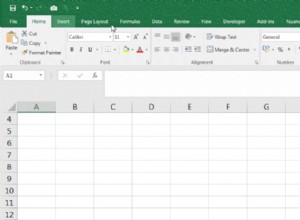Dlaczego w ogóle używasz do tego PL/SQL? Z tego, co powiedziałeś, robisz trochę matematyki, dlaczego nie zrobić tego po prostu w SQL? Będzie to również możliwe z kombinacją INSTR i SUBSTR, ale ładniej jest patrzeć na REGEXP_SUBSTR.
select to_number(regexp_substr(ip, '[^.]+', 1, 1)) * power(2,24)
+ to_number(regexp_substr(ip, '[^.]+', 1, 2)) * power(2,16)
+ to_number(regexp_substr(ip, '[^.]+', 1, 3)) * power(2,8)
+ to_number(regexp_substr(ip, '[^.]+', 1, 4))
, icb.*
, icl.*
from ip_city_block icb
join ip_city_location icl
on icl.locid = icb.locid
where to_number(regexp_substr(ip, '[^.]+', 1, 1)) * power(2,24)
+ to_number(regexp_substr(ip, '[^.]+', 1, 2)) * power(2,16)
+ to_number(regexp_substr(ip, '[^.]+', 1, 3)) * power(2,8)
+ to_number(regexp_substr(ip, '[^.]+', 1, 4))
between icb.startipnum and icb.endipnum
Demonstracja danych wyjściowych REGEXP_SUBSTR SQL Fiddle
Jeśli masz aby to zrobić w PL/SQL należy zrobić dwie rzeczy:
- Sprawdź, czy możesz zadeklarować swoją funkcję jako deterministyczny .
- Wypróbuj i skorzystaj z sub - buforowanie zapytań .
Wygląda na to, że robisz już 2, ale możesz spróbować rozszerzyć to za pomocą klauzuli WITH:
with the_ip as ( select get_ip_integer('74.253.103.98') as ip from dual )
select the_ip.ip
, icb.*
, icl.*
from ip_city_block icb
join ip_city_location icl
on icl.locid = icb.locid
join the_ip
on the_ip.ip between icb.startipnum and icb.endipnum




